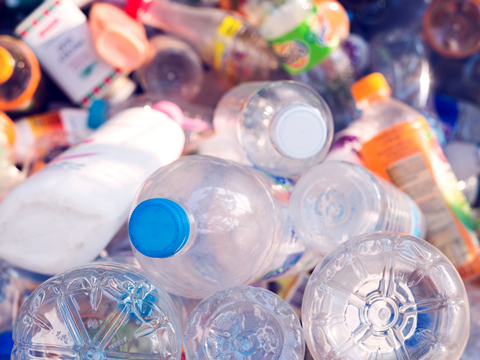
Indian companies Chemco Group and Kandoi Group have announced a strategic joint venture to build two manufacturing facilities for producing FIBC (Flexible Intermediate Bulk Container) bags from recycled PET (rPET).
The facilities are due to be built in Vapi and Dahej, Gujarat, with a total investment of ₹450 crore. Apparently, the upcoming facilities will offer a closed-loop system from PET bottle collection and washing to tape extrusion, weaving, and final bag fabrication, aiming to ensure full traceability, consistent quality and reduced environmental impact.
The companies state that the plants are designed to recycle over 10 million PET bottles per day (approximately 3.6 billion annually) and will operate entirely on renewable energy. The plants seek to deliver a high-strength, low carbon alternative to traditional polypropylene and polyethylene packaging.
The rPET-based FIBC bags are said to be fully aligned with India’s Extended Producer Responsibility (EPR) framework and global ESG expectations. With end-to-end control over sourcing, recycling, and fabrication, the joint venture offers a scalable model for sustainable, compliant industrial packaging with ‘reliable recycled content and traceable supply chains’.
The venture is expected to generate over 2,500 direct and indirect jobs across collection, processing, logistics, and manufacturing. By partnering with Urban Local Bodies (ULBs) and municipal corporations, the initiative hopes to formalize India’s waste collector network and offer steady livelihoods, improved working conditions, and integration into a more transparent and efficient waste ecosystem.
Commercial production is expected to begin by the end of 2025. Both Chemco Group and Kandoi Group plan to scale capacity in phases and explore export opportunities to position India as a global supplier of sustainable, industrial packaging solutions.
In related news, earlier this month Huber+Suhner reportedly packaged its fibre modules in blister packs made from 100% recycled PET, a move hoped to minimize waste and halve CO2 emissions compared to traditional packaging solutions. The packaging is designed with a universal fit to apply to every version of the products, from left-or-right hand cassettes to standard and ribbon versions.
Faerch recently launched its rPET lid for the coffee and beverage industries, aiming to reduce waste and provide a circular solution for businesses. Crafted from up to 85% recycled PET plastic and able to be fully recycled into food-grade packaging, Faerch also seeks to reduce carbon footprints with the solution.
If you liked this story, you might also enjoy:
The ultimate guide to the Packaging and Packaging Waste Regulation in 2025
How are the top brands progressing on packaging sustainability?
Everything you need to know about global packaging sustainability regulation in 2025
The key to increasing the use of reusable packaging in supermarkets














No comments yet